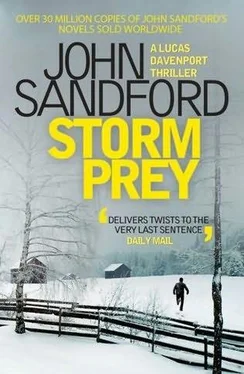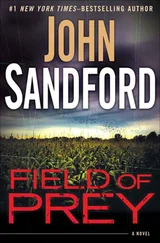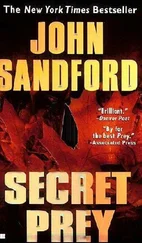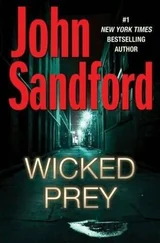John Sandford - Storm prey
Здесь есть возможность читать онлайн «John Sandford - Storm prey» весь текст электронной книги совершенно бесплатно (целиком полную версию без сокращений). В некоторых случаях можно слушать аудио, скачать через торрент в формате fb2 и присутствует краткое содержание. Жанр: Триллер, на английском языке. Описание произведения, (предисловие) а так же отзывы посетителей доступны на портале библиотеки ЛибКат.
- Название:Storm prey
- Автор:
- Жанр:
- Год:неизвестен
- ISBN:нет данных
- Рейтинг книги:4 / 5. Голосов: 1
-
Избранное:Добавить в избранное
- Отзывы:
-
Ваша оценка:
- 80
- 1
- 2
- 3
- 4
- 5
Storm prey: краткое содержание, описание и аннотация
Предлагаем к чтению аннотацию, описание, краткое содержание или предисловие (зависит от того, что написал сам автор книги «Storm prey»). Если вы не нашли необходимую информацию о книге — напишите в комментариях, мы постараемся отыскать её.
Storm prey — читать онлайн бесплатно полную книгу (весь текст) целиком
Ниже представлен текст книги, разбитый по страницам. Система сохранения места последней прочитанной страницы, позволяет с удобством читать онлайн бесплатно книгу «Storm prey», без необходимости каждый раз заново искать на чём Вы остановились. Поставьте закладку, и сможете в любой момент перейти на страницу, на которой закончили чтение.
Интервал:
Закладка:
Moving as silently as she could, in the semi-dark, she moved next to the babies' special bed. When you didn't look closely, they looked like any other toddlers, who happened to be sleeping head-to-head; small hands across their chests, eyes softly closed, small chests rising up and down. The first irregularity that a visitor might notice was the ridges in their skulls: Weather had placed a series of skin expanders under their scalps, to increase the amount of skin available to cover the skull defects-the holes-when they were separated.
There was really no need for her to look at them: she simply wanted to. Two babies, innocent, silent, feeling no pain; their world was about to change. She watched them for a minute. The one named Ellen sighed, and one foot moved, and then she subsided again.
Weather tiptoed out.
The old man in the pharmacy was moaning, the woman trying to talk, and the old man heard the woman fall down against a chair, after trying to get up, and then somebody was rapping at the service window and they both tried to scream, and they were loud but muffled. He was chewing at the duct tape on his mouth, and finally it came loose from one side and he spat it away from his face.
"Dorothy, can you hear me?"
A muffled "Yes."
"I think I'm hurt bad. If I don't make it, tell the police that I scratched one of the robbers. I should have blood on my hand."
She replied, but the reply was unintelligible. He'd been working on the tape on his wrists, and eventually pulled one free… He tried to get up, but was too weak. He couldn't orient himself; nothing seemed to be working. He fumbled at the tape over his eyes, failed to get it free, moaned, moaned…
More time went by and the old man felt himself going dark; didn't know what was happening, but his heart was pounding and he told himself, calm down, calm down. He'd had heart and circulatory problems, clots, and he didn't need a clot breaking free, but his heart was pounding and he was sweating and something was going more wrong than it should be, more wrong than rolling around on a tile floor gagged and blinded and beaten. Hurt bad.
Then the door rattled and he shouted and he heard an answering shout, and he shouted again and Dorothy tried to scream through her gag, and some time later the door rattled again, and he heard it open, and somebody cried out, and then more people were there.
He blacked out for a moment, then came back, realized he was on a gurney, that they'd put a board on him, they were moving down a hallway. Somebody said, a few inches from his face, "We're moving you down to the ER, we're moving you."
He said, as loud as he could as the world faded, "I scratched him. I scratched him. Tell the police, I scratched him…"
The operating room had been reworked for the separation operation. Maret had stripped out all the general surgery stuff, put in more lights, brought in the custom table. The table had been made in Germany, and lined with a magic memory foam that would adapt to the kids as their bodies were moved this way and that.
Sara and Ellen Raynes were joined at the skull, vertically, but slightly turned from each other. If an observer was standing at Sara's feet, looking at her face, and Sara was looking straight up, then Ellen's face was upside down and rotated to the observer's left. Imaging studies, done by Regan and her associates, indicated that their brains were separate, but they shared a portion of the dura mater under the skull, a kind of fibrous lining that protected and facilitated the drainage of venous blood from the brain.
The incoming blood in the arterial system was good in both babies; but if the blood couldn't be drained away, and recirculated, it would put increasing pressure on the brains, eventually killing them.
Sara and Ellen were eighteen months old. Their parents had known the babies were conjoined before birth. The option of abortion had been proposed but rejected by the parents, Lucy and Larry Raynes, for religious and emotional reasons. The children had been delivered by cesarean section at seven and a half months. Sara had been born with a congenital heart defect, which further complicated matters.
Weather pushed into the OR and found three surgeons working with the baby doll-a life-sized, actual-weight dense-foam model of the Raynes twins. They had it on the table and were rolling it against the foam.
"So… no change," Gabriel Maret said.
Maret was a short man, with a head slightly too large for his body, the size emphasized by a wild thatch of curly black hair, shot through with silver. He was dark-eyed, olive-complected, with a chipped front tooth. He favored cashmere in his carefully tailored, French-cut winter suits, and the women around the hospital paid close attention to him: he was French, and the observing women agreed that his accent, in English, was perfect.
Maret had come to dinner with Lucas and Weather every week or so over the winter, enjoying the kids and the family life. He was divorced, with four children of his own. He and his wife still shared an apartment in Paris, and, sometimes, he said, a bed. "It's insane," he said. "She is more stubborn than one of your mules."
"More stubborn than you?" Weather had asked.
He considered the question: "Maybe not that stubborn," he said.
He and her husband, Lucas, who got along improbably well, once spent an hour talking about men's fashion, nearly driving Weather crazy with the inanity of it. She'd said, "Fifteen minutes on loafers? Loafers?"
"We were just getting started," Lucas said. She wasn't sure he was joking. "So… no change," Maret said.
"Not as long as everything goes right," said John Dansk, a neurosurgeon. "If we run into trouble splicing the six vein, if we lose it, we may have to take out another piece and that means rolling Sara this way and Ellen will torque back to the right."
The six vein was a vein shared by the twins. They'd tie it off on Ellen's side, and attempt to splice it into the five vein on Sara's, the better to move blood out of Sara's brain. The vein numbers simply came from imaging charts prepared by the radiologists.
"So what are you suggesting?" Maret asked. He glanced at Weather: "You are gorgeous this morning."
"I know," she said, to make him laugh. As did the other women around him, she liked to make him laugh.
Dansk scowled at them and said, "I'm suggesting that we slice a few wedges out of the base of the mold, so that we can use them as shims if we have to brace one of the kids."
"Why not have a nurse hold her?" Maret asked.
"Because we might be talking a couple hours, if worse comes to worse."
"You know how much that mold cost?" Maret asked.
"About one nine-thousandth of your annual salary," Dansk said.
Maret shrugged. "So, we cut a few wedges. Why not? If we need them, we have them, and if we don't, it won't matter."
"Should have thought of this before now," said Rick Hanson, an orthopedic surgeon who would make the bone cuts through the kids' shared skull. He seemed shaky; he'd invented a half-dozen little saws for this operation and would be the focus of a lot of attention. Because of the way the children's skulls intersected, they formed a complex three-dimensional jigsaw puzzle-basically, an oval ring of bone-of which he'd be removing only a few pieces at a time. Normally the cutting would have been done by the neurosurgeon, with drills and flexible wire saws. Hanson, from Washington University in St. Louis, had developed his own set of electric saws matched to jigs-cutting templates-for complicated bone cuts. Maret had decided that Hanson's technique would be ideal, and would make it possible to prepare perfectly fitted composite plates to cover the holes in the babies' skulls.
"We're just nervous," Maret said now. "That's normal." Maret was the team leader, the one with all the experience. He'd done two other craniopagus separations, one in France, one in Miami. Of the four children involved, two had survived-one from each operation. When he talked about the work, he talked mostly about the children who'd died.
Читать дальшеИнтервал:
Закладка:
Похожие книги на «Storm prey»
Представляем Вашему вниманию похожие книги на «Storm prey» списком для выбора. Мы отобрали схожую по названию и смыслу литературу в надежде предоставить читателям больше вариантов отыскать новые, интересные, ещё непрочитанные произведения.
Обсуждение, отзывы о книге «Storm prey» и просто собственные мнения читателей. Оставьте ваши комментарии, напишите, что Вы думаете о произведении, его смысле или главных героях. Укажите что конкретно понравилось, а что нет, и почему Вы так считаете.







